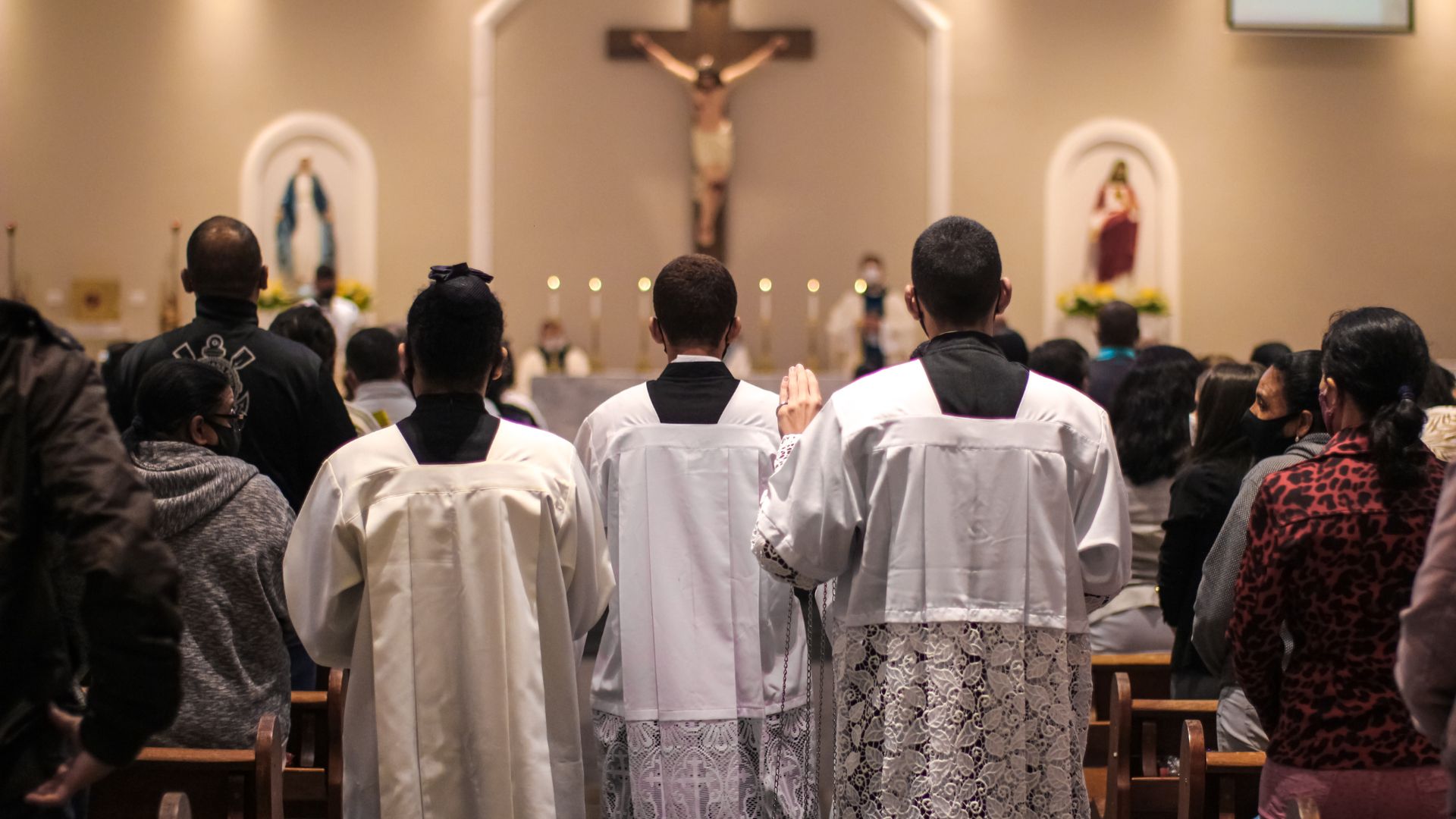In the annals of biblical history, King Hezekiah emerges as a pivotal figure, renowned for his piety and leadership. Ascending as the 13th ruler of Judah, his reign was a beacon of religious reform and a bulwark against the encroaching Assyrian empire.
Chronicled in sacred texts, Hezekiah’s rule was characterized by a profound dedication to the worship of Yahweh, which stood in stark contrast to the preceding era’s spiritual decay.
Facing formidable threats, Hezekiah’s steadfast faith and strategic prowess were instrumental in safeguarding his kingdom.
This article seeks to illuminate Hezekiah’s enduring influence on both his kingdom and the broader biblical narrative, highlighting his leadership’s significance in fostering a legacy that resonates through the ages.
King Hezekiah In The Bible
King Hezekiah, a prominent figure in the Bible, stands as an epitome of faith, leadership, and devotion to God.
His reign is not only marked by significant reforms but also by a miraculous encounter with the Almighty.
We will delve into the life and legacy of King Hezekiah, exploring the key events and lessons we can draw from his story.
Early Life and Ascension to the Throne
These early trials set the stage for his reign and defined his legacy as a leader committed to the restoration of his people’s covenant with God.
King Hezekiah was born into the Davidic line, the royal bloodline of Judah, as the son of King Ahaz.
This heritage positioned him within a legacy of rulership that was both revered and burdened by expectation. His lineage was a lineage of prophets and kings, filled with both glory and tumult.
Cultural and Political Context of Judah during His Youth
During Hezekiah’s early years, Judah was a nation at a crossroads. Idolatry had crept into the land, and the kingdom was under the shadow of the expanding Assyrian Empire.
The spiritual degradation introduced by his father, Ahaz, had led to a cultural malaise that threatened the very soul of the nation. Political alliances were tenuous, and the kingdom was rife with uncertainty.
Hezekiah’s Ascension and the Early Challenges He Faced
Hezekiah’s rise to the throne was not merely a change in leadership but a hope for renewal. Upon his ascension, he was immediately confronted with the monumental task of navigating his kingdom through the prevailing idolatry and external threats.
His initial reforms were a bold declaration of change, as he sought to restore the temple worship and centralize religious practices in Jerusalem.
The challenges he faced were as much within his court as they were outside the city walls, with opposition from both the entrenched pagan priesthood and the looming Assyrian threat.
Religious Reforms and Restorations
Before Hezekiah’s ascent, Judah was entrenched in idolatry and spiritual neglect. His father Ahaz had introduced altars to foreign gods and had even incorporated pagan rituals into the Temple service.
The high places, where unauthorized worship was conducted, dotted the landscape, and the sacred bronze serpent, once a symbol of deliverance, had become an object of idolatrous worship.
The people had strayed far from the statutes given to their forefathers, resulting in a society where the lines between the worship of Yahweh and the worship of idols were blurred.
Hezekiah’s Campaign to Purify Worship Practices
Determined to reverse the decline, Hezekiah embarked on an ambitious campaign to purify Judah’s worship practices.
One of his first acts as king was to destroy the high places, smashed the sacred stones, and cut down the Asherah poles.
He also broke into pieces the bronze serpent that Moses had made, for up to that time the Israelites had been burning incense to it.
His reforms extended to the priesthood, insisting on strict adherence to the laws of Moses and the proper conduct of temple rites.
The Restoration of the Temple and the Passover Celebration
Hezekiah’s religious revival reached its zenith with the restoration of the Temple and the re-establishment of the Passover celebration.
The Temple, neglected and profaned under Ahaz, was cleansed and reconsecrated. Hezekiah invited all of Israel and Judah to partake in the Passover feast, an event that had not been observed with such communal unity and fervor since the time of Solomon.
This Passover was not just a restoration of a religious observance; it was a powerful symbol of a unified national identity centered around the worship of Yahweh.
The king’s efforts to renew the covenant between God and His people, and to reestablish Jerusalem as a holy city, laid a foundation for a spiritual revival that echoed throughout the generations.
Political Achievements
King Hezekiah’s political acumen was as astute as his religious reforms were vigorous.
Understanding the geopolitical landscape of the time, Hezekiah engaged in shrewd diplomatic strategies to navigate the threats surrounding Judah.
He formed alliances, most notably with Babylon, and used his understanding of regional politics to position Judah advantageously.
These alliances were part of his broader strategy to assert Judah’s autonomy and to counterbalance the looming Assyrian threat.
His Rebellion Against Assyrian Dominance
The Assyrian Empire, a regional superpower, had subjected Judah and many neighboring states to its dominance.
Hezekiah’s reign marked a turning point as he boldly rebelled against Assyrian control. He refused to pay the heavy tribute imposed by Assyria, signaling a break from their overlordship and a move towards national sovereignty.
This act of defiance was a significant risk and demonstrated Hezekiah’s commitment to the independence of his kingdom.
Strengthening of Jerusalem’s Defenses
Anticipating retaliation from Assyria, Hezekiah took proactive measures to fortify Jerusalem. He constructed a broad wall that encircled the city, bolstering its defenses.
He also commissioned the building of the Siloam Tunnel, an engineering marvel, to secure a reliable water source within the city walls in preparation for a prolonged siege. Additionally, Hezekiah stockpiled weapons and strengthened his army, preparing for the inevitable conflict.
These measures were pivotal in Jerusalem’s ability to withstand the Assyrian siege and remain a bastion of Judean culture and autonomy.
His foresight in strengthening Jerusalem’s defenses not only secured the city’s immediate future but also solidified his legacy as a leader who was as pragmatic as he was faithful.
The Assyrian Threat and Deliverance
The Assyrian king Sennacherib, incensed by Hezekiah’s rebellion, launched a massive campaign against Judah.
The historical record, corroborated by Assyrian annals, tells of a brutal onslaught that laid waste to numerous Judean cities.
The siege of Jerusalem, circa 701 BCE, was the apex of this campaign. Sennacherib’s forces surrounded the walled city, trapping its inhabitants and threatening their annihilation. It was a moment of existential crisis that tested the mettle of Hezekiah’s leadership.
Hezekiah’s Prayer and Isaiah’s Prophecy
Faced with the dire prospect of defeat, King Hezekiah turned to prayer, seeking divine intervention. He appealed to the prophet Isaiah, who assured him that the city would not fall into Assyrian hands.
The biblical narrative describes this moment as one of profound spiritual significance, where Hezekiah’s faith intersected with Isaiah’s prophetic vision.
Isaiah’s message from God promised deliverance, asserting that the Assyrian king would hear a rumor and withdraw without setting foot in the city or shooting an arrow there.
Miraculous Deliverance and the Retreat of Assyrian Forces
The biblical account of what transpired next borders on the miraculous. It tells of a divine plague that decimated the Assyrian camp overnight, sowing chaos and forcing a retreat.
Sennacherib returned to Nineveh, where he met his demise. The deliverance of Jerusalem was nothing short of extraordinary, a testament to Hezekiah’s faith and the power of divine salvation.
This event left a deep imprint on the collective memory of the Judean people, celebrating their survival against overwhelming odds and solidifying Hezekiah’s reputation as a leader favored by God.
It was a deliverance that would echo through the corridors of time, inspiring countless generations with the tale of a city saved by faith and divine providence.
Personal Trials and Illness
At the zenith of his reign, King Hezekiah was struck by a severe illness. The Bible describes this sickness as life-threatening, bringing the king to the brink of death.
In this moment of personal vulnerability, Hezekiah turned to God in earnest prayer, weeping and beseeching for his life. His prayer was a poignant reflection of his human frailty and his dependence on divine mercy.
The Sign of the Sundial and the Extension of His Life
In response to Hezekiah’s heartfelt plea, God granted him a miraculous sign: the shadow on the sundial of Ahaz moved backward, signifying the reversal of time and a promise of healing.
This supernatural event served as a divine affirmation of Hezekiah’s faith and his continued purpose in God’s plan.
Subsequently, Hezekiah’s life was extended by fifteen years—a divine act that underscored his favored status with God and allowed him to continue his reforms and leadership.
Theological Interpretations of His Personal Trials
Theological reflections on Hezekiah’s illness and recovery often grapple with themes of human mortality, divine intervention, and the purpose of suffering.
Some interpretations suggest that Hezekiah’s illness was a test of his faith, a refining fire meant to prepare him for further challenges.
Others see in his recovery a reminder of God’s sovereignty over life and death, and the power of prayer.
His illness and subsequent healing are also viewed as a metaphor for the spiritual revival Hezekiah led in Judah—a nation that had been spiritually sick and was brought back to life through repentance and divine grace.
These personal trials of Hezekiah serve as a powerful narrative about the resilience of the human spirit when allied with faith.
They underscore the biblical message that even kings are not immune to the trials of life, but through faith, they can find strength and redemption.
Hezekiah’s story of illness and recovery resonates with the hope of restoration, not just for the individual, but for a whole nation under his leadership.
Economic Initiatives and Prosperity
King Hezekiah’s insight extended beyond the spiritual and military realms into the economic arena.
Recognizing the importance of a strong economy for national security and prosperity, he implemented significant reforms.
These included revamping the agricultural sector, improving the nation’s infrastructure, and encouraging the production and exchange of goods.
Hezekiah’s economic policies were designed to revitalize a kingdom that had been weakened by years of mismanagement and external threats.
Achievements in Water Supply with the Construction of the Siloam Tunnel
One of Hezekiah’s most notable achievements was addressing Jerusalem’s vulnerability in water security.
The construction of the Siloam Tunnel, an impressive feat of engineering, channeled water from the Gihon Spring into the city, ensuring a steady and protected water supply during siege conditions.
This not only improved everyday life for his people but was also a critical element in Jerusalem’s ability to withstand the Assyrian siege.
Contributions to Proverbs and the Legacy of Wisdom Literature
King Hezekiah’s contributions also extended to the cultural and intellectual domains. He is credited with patronizing a group of scribes who collected and preserved a series of proverbs, many of which are attributed to King Solomon.
These proverbs were added to the biblical Book of Proverbs and represent a significant portion of the wisdom literature of the Old Testament.
This legacy reflects Hezekiah’s commitment to promoting wisdom and learning, furthering the intellectual prosperity of his people alongside their economic well-being.
The initiatives and achievements of Hezekiah in the economic sphere demonstrate a comprehensive approach to leadership.
He understood that a nation’s strength lay not only in its military might or spiritual integrity but also in its economic stability and intellectual richness.
His reign, therefore, was marked by efforts to ensure that Judah was prosperous, secure, and wise—a reflection of the holistic prosperity he envisioned for his kingdom.
Mistakes and Failures
Even the greatest of leaders are susceptible to error, and King Hezekiah was no exception. A notable lapse occurred when envoys from Babylon visited Jerusalem.
Flattered by their interest, Hezekiah showed them all his treasure house—the silver, the gold, the spices, and the precious oil—along with his armory and everything found among his treasures.
There was nothing in his palace or in all his kingdom that Hezekiah did not show them. This act of pride and indiscretion would later be criticized by the prophet Isaiah, who prophesied that all these treasures would eventually be carried off to Babylon and that some of Hezekiah’s own descendants would be taken away as eunuchs to serve in the Babylonian king’s palace.
Biblical Critique of His Pride and Its Consequences
The Bible does not shy away from highlighting this folly of Hezekiah, presenting it as a cautionary tale of pride and misplaced trust.
His decision to display the wealth of his kingdom to potential adversaries was seen as an act of vanity, lacking the discernment required of a king. The biblical narrative regards this moment as one of Hezekiah’s significant failures, a blemish on an otherwise exemplary reign.
Lessons Learned from Hezekiah’s Lapses in Judgment
Hezekiah’s mistakes offer profound lessons in leadership. They remind us of the need for humility, the importance of discretion, and the consequences of showing off one’s treasures—literal or metaphorical—to those who might not have one’s best interests at heart.
The incident with the Babylonian envoys teaches the value of seeking counsel and the dangers of complacency in success.
From Hezekiah’s response to Isaiah’s rebuke, where he humbly accepts the prophecy, leaders can learn the grace of accepting criticism and the wisdom in acknowledging one’s shortcomings.
Hezekiah’s Legacy and Death
As Hezekiah’s life drew to a close, the mantle of leadership passed to his son Manasseh. This transition marked a significant shift in Judah’s religious and political climate.
Manasseh’s reign took a starkly different path from his father’s, as he reversed many of Hezekiah’s reforms and reintroduced pagan worship practices.
This regression serves to highlight the fragility of Hezekiah’s religious revival and the strong personal imprint he had left on his nation’s policies and practices.
The Long-term Impact of Hezekiah’s Reign on Judah
Despite the reversal under Manasseh, the long-term impact of Hezekiah’s leadership on Judah was profound.
Hezekiah’s reign was seen as a high watermark for the kingdom, a period of faithfulness to Yahweh, and a time when Judah asserted its independence and resilience.
The fortifications and water supply system he established ensured the city’s survival in future sieges, and his religious reforms laid the groundwork for a future return to monotheism under King Josiah.
Economically and culturally, the advancements made during his time had a lasting effect on the prosperity and identity of Judah.
How Hezekiah is Remembered in Jewish and Christian Traditions
In Jewish tradition, Hezekiah is remembered as one of the greatest Judean kings, second only to David and Solomon.
His reliance on God, his commitment to the Torah, and his role in preserving the Davidic lineage are celebrated. Christian tradition also honors Hezekiah, often citing his story as an example of faithful leadership and divine deliverance.
His prayers and God’s responses to them are frequently referenced in sermons and biblical commentaries, and his life is studied for the powerful lessons it offers about faith, leadership, and the consequences of human actions.
Hezekiah’s death marked the end of an era, but the legacy of his reign continued to inspire future generations.
His efforts to return his people to the worship of Yahweh and his leadership during the crisis with Assyria became emblematic of God’s ability to save and of the potential for reform and renewal.
Hezekiah’s story, with its many layers of triumph, tragedy, reform, and resilience, remains a testament to the complexities of leadership and the enduring hope for redemption.
Frequently Asked Questions
FAQ 1: What Is the Significance of Hezekiah’s Sundial Miracle?
The sundial miracle is significant as it validates the power of prayer and God’s responsiveness. It underscores that God is willing to intervene in our lives in extraordinary ways when we seek Him earnestly, reminding us of His mercy and ability to work miracles.
FAQ 2: How Did Hezekiah’s Reforms Impact Judah’s Spirituality?
Hezekiah’s reforms had a profound impact on Judah’s spirituality. They led to a revival of faith, the elimination of idol worship, and the restoration of the Temple as a center of worship and sacrifice. This significantly rekindled the nation’s relationship with God.
FAQ 3: What Can We Learn from Hezekiah’s Trust in God During Crisis?
Hezekiah’s unwavering trust in God during the Assyrian invasion teaches us that, no matter how dire our circumstances may be, we can find refuge and strength in God. Trusting in Him brings deliverance and victory, even in the face of seemingly overwhelming challenges.
Conclusion
In conclusion, the life of King Hezekiah in the Bible serves as a beacon of faith, leadership, and divine intervention.
His early upbringing, impactful reforms, miraculous healing, and unwavering trust in God offer invaluable lessons for believers today.
King Hezekiah’s story encourages us to trust in the power of prayer and God’s promises, to exercise strong leadership in times of reform, and to rely on the Almighty in moments of crisis.
As we reflect on the life of Hezekiah, may we be inspired to walk in the footsteps of faith and devotion, seeking God’s guidance and experiencing His miraculous intervention in our lives? Let the legacy of Hezekiah remind us that faith and prayer can move mountains and that God’s promises are unwavering.







